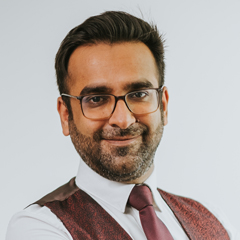11:00 AM - 11:15 AM | Keynote Address: Biomarkers of Transgenerational Trauma in Humans: Just a Matter of Fa(c)T
Overview: Childhood trauma significantly increases the risk of psychiatric and physical illness in adulthood. Emerging evidence suggests these effects may be biologically transmitted across generations. Our research investigates the epigenetic mechanisms underlying this phenomenon, focusing on microRNAs in serum, sperm, and milk from ethnically diverse trauma-exposed human cohorts. Samples include Pakistani children who experienced paternal loss and maternal separation, adult men with early-life trauma, Polish mothers with adverse childhood experiences, and survivors of the Srebrenica genocide and their children. Across these groups, we identified a conserved microRNA signature linked to cholesterol signaling—implicating lipid pathways in the biological embedding and intergenerational transmission of trauma. Ongoing studies using ethologically relevant mouse models and ex vivo systems aim to further elucidate the role of lipids and lipid-associated factors in mediating trauma’s enduring effects across generations.

11:15 AM - 11:25 AM | Presentation: From Evidence to Action: Integrating Mental Health into Primary Care Practice
11:25 AM - 11:35 AM | Presentation: Context-specific Innovations for Perinatal Mental Health in Low- and Middle-Income Countries
11:35 AM - 11:50 AM | Question and Answer Session
